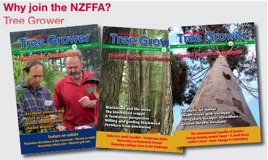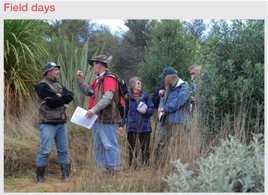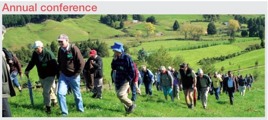Realising the opportunities for biofuels and bioproducts
Peter Morgan, New Zealand Tree Grower August 2012.
The one-day conference I attended was mainly about bringing together as many existing and potential stakeholders in all areas of bio-activity as they relate to the forest industry sector.
Presentations centred around using what once was waste material at the large industrial plants, as well as the large forest feedstocks from the central plateau and Northland. Bioproducts discussed ranged from pelletised waste, through ethanol production, bio-coal, bio-crude, lignin as a chemical precursor, petrol, diesel, jetfuel and carbon nano fibres. What was amazing was the number of words that can be devised using the prefix ‘bio’.
On the second day, those interested in developing and progressing a coordinated strategy to progress biofuels and bioproducts interests, met at Scion. Much of current research and development is coming from close partnerships between the larger scale industrial companies, forest owner and Scion.
The significance of all this for the New Zealand economy is the transformation of waste, with its associated handling costs, into high value products. At the same time this contributes significantly towards New Zealand’s greenhouse gas mitigation targets. There is also the economic issue of the degree to which worldwide carbon costs filter down to the consumer. This principle is well illustrated by Air New Zealand’s focus on working towards using biojet fuel for its aircraft. The aim is to avoid carbon-based levies and taxes which are being introduced by many destination countries, and to reduce the carbon footprint associated with our dependence on the tourism industry.
Relevance of bio-whatever to farm foresters
How does all of this affect the members of the NZFFA? At first glance you may say it is not much. If we do nothing that may well be all right. On the other hand, if we identify where we have advantages such as our ability to use geographic and climatic variance, and the ability to respond to changing demand for new product characteristics, then we could become significant players.
The challenges for us are to –
- Identify if and where there is interest in moving into the bio-scene within the NZFFA
- Develop relationships and partnerships with the organisations already committed to this direction
- Identify opportunities where we can extend the forestry component of our operations, and increase the returns.
Two areas which have distinct potential for farm foresters are the conversion of forest waste into ethanol or fuel pellets. Issues relating to scale and feedstock availability would need to be addressed, but once the proof of concept is demonstrated to be viable, co-operatives of one form or another could be an option.
I intend delving in more detail into aspects of the bio- whatever in future articles, and my adventures into pelletising my own waste trees.
Peter Morgan is a farm forester and has been developing ideas and technology for pelletising wood on his own property near Upper Hutt.

 Farm Forestry New Zealand
Farm Forestry New Zealand

